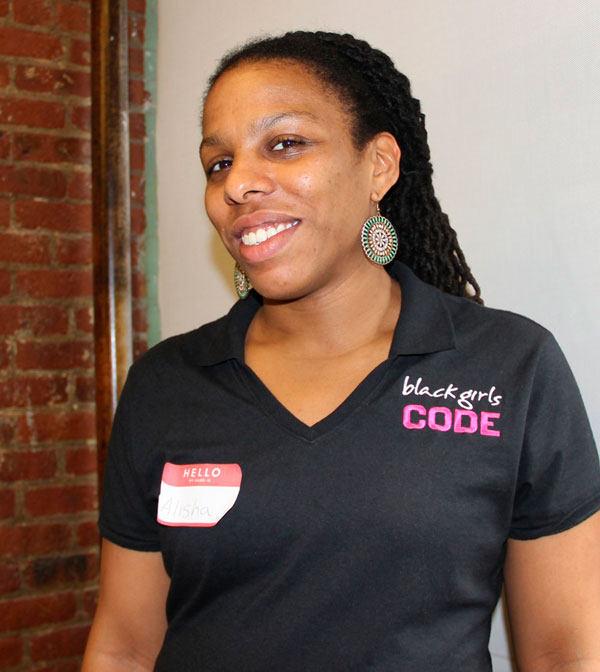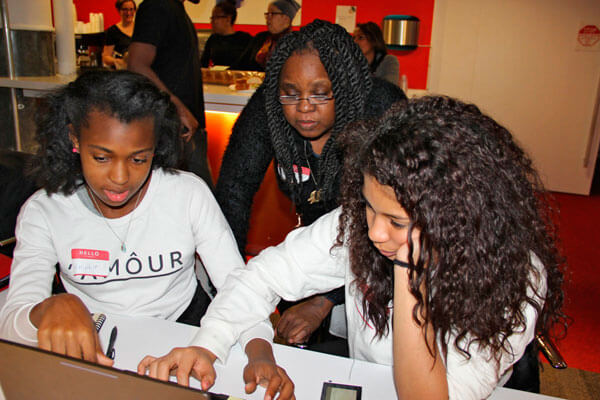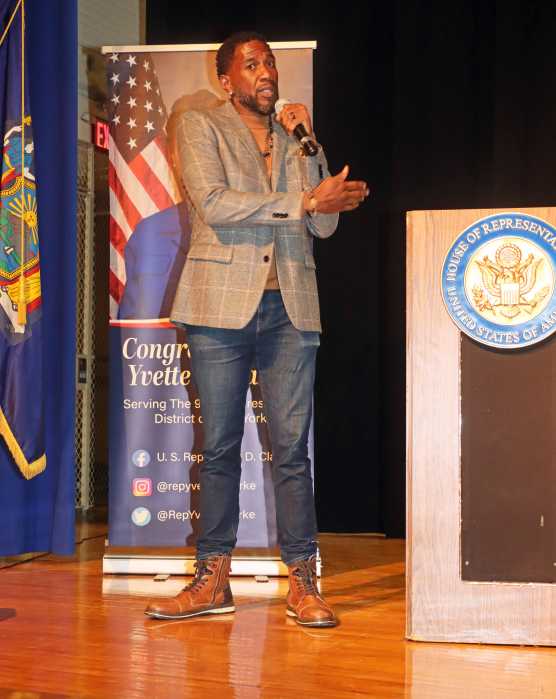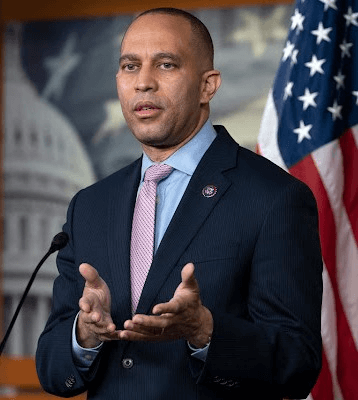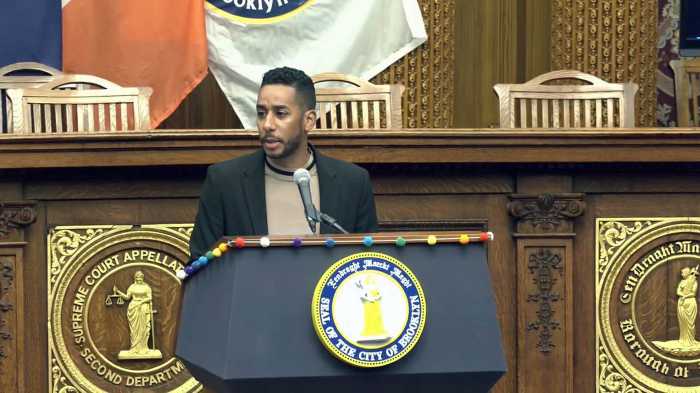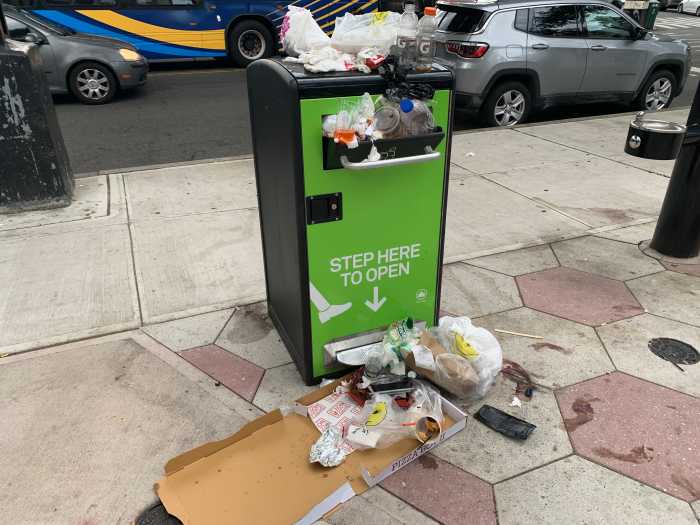It was over a decade ago when Trinidadian-descent Alisha Finley graduated St. Josephs College majoring in computer science. She was among all the guys. “There were only two women with that major,” she explained. Finley is a core volunteer for Black Girls CODE (BGC). In a male dominated field, here she is now among female peers. When she discovered BGC, it was as if she found a family.
Seventy-one girls ages 7-17 sat in front of laptops focusing their concentration last Saturday during the “Build a Game in a Day with ‘Scratch,’” the BGC full day workshop, held on the second floor of the Chelsea Market, across from the Google building.
The young students– experienced and first-timers– traveled from all five boroughs and surrounding suburbs, and attend public, charter schools and private schools.
Sharing laptops provided by Google, the “gamers” worked in pairs led by three technical instructors. Using the coding programming language “Scratch” and guided by a team of assisting professionals, they built four games. By days end the girls presented their work to their parents as well as the group.
With laptops provided and “no prior coding experience needed,” NYC Chapter staff member Raven Ali, emphasized, “They experienced the achievement of building a game.”
Engineer Kimberly Bryant started Black Girls CODE in the Bay area in 2011 with a goal to have programs that expose girls to professional women who are engineers, data scientists, user interface designers and product designers–science and technology (STEM) professionals. There are 15 chapters nationwide.
“Many youth (and people in general) don’t even know what engineers do, and this is an opportunity for them to be exposed to the profession,” said Raven, offering the economic projection statistic, “By 2018, there will be 2.4 million unfilled STEM jobs.”
“There are financial freedom opportunities in STEM careers choices. In a spirit of fun, camaraderie and sense of community, Black Girls CODE plants the seeds of technology career options.”
The cost for the workshops are $35 with lunch, snacks and goodie bag provided and scholarships are available.
With a team of others, Alisha Finley is Event and Volunteer Lead; 47 volunteers assisted with the event. Fourteen-year-old Olivia Ross (her mom is from Barbados, her dad from Grenada) was one of them.
Ross began coding at age 10 and says, “I never had Black girlfriends who were interested (in computer stuff). When Ross started coming to BGC events at age 12, “I felt so much more comfortable,” and in attending programs she learned to be part of a team and community.
Ross was part of a four-girl team at the BGC’s Hackathon where they made apps to combat domestic violence, apps that helped link to more information, support lines, and access to safe places. Their team won first place and each winner received $1500 to further their education.
Admitting there are many gender biases on the Internet, Ross disabuses any notion, “Yes, girls play computer games!” It’s no surprise that she wants to be a game designer.
Even the volunteers get surprised at these events. Finley spoke of one girl of six or seven years, “She was so bright, she could explain code in ways I couldn’t. She was on my level!”
Google is the major sponsor of the New York Chapter. Google’s head of external affairs William Floyd agreed that diversity in the technology field is abysmal. In partnerships like this they are “building a community of technologists.” He also is particularly impressed on how involved and supportive the parents are.
BGC sponsors a three-day Hackathon in late June for girls between the ages of 12 – 17 where students participate in creating solutions to social issues within their communities, building “skills, confidence, experience and have lots of fun” while building apps. Its two-week computer camp takes place in mid-August in the city. For information: www.black
